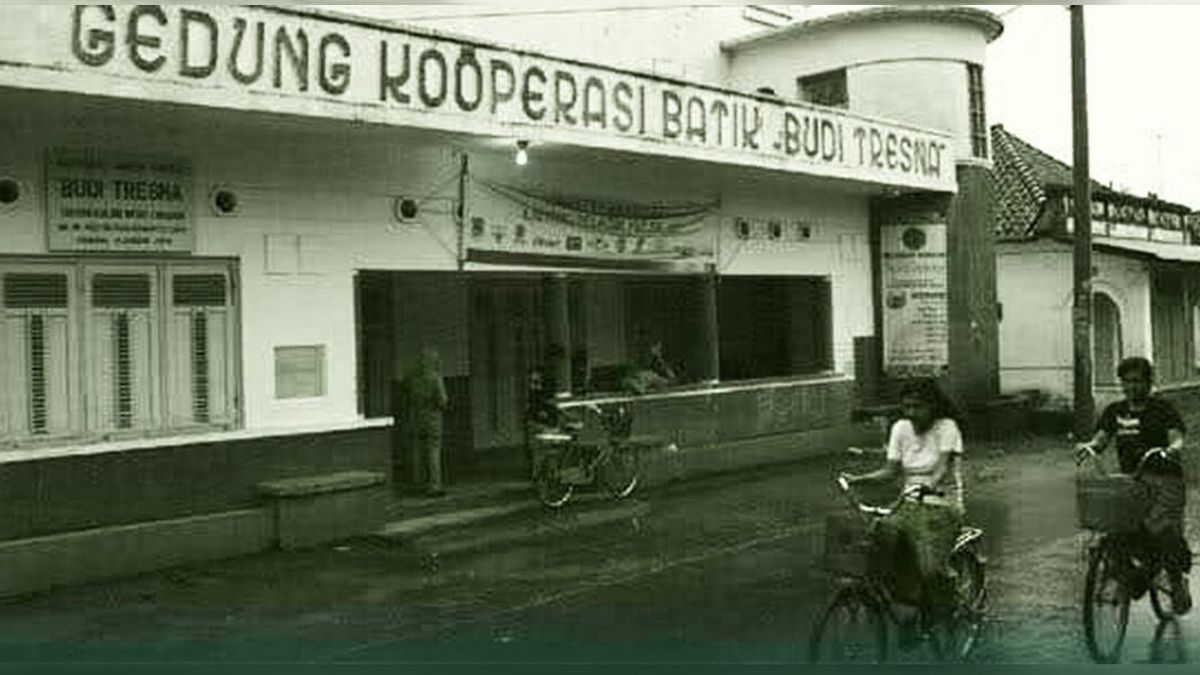JAKARTA - On July 12, 1947, the First Cooperative Congress was held. The event in Tasikmalaya, West Java started the cooperative congress which marked the movement of cooperatives in Indonesia. Congress that day also designated July 12 as National Cooperative Day.
The choice of Tasikmalaya as the venue for the congress was because at that time the city of Bandung was being occupied by the Dutch. At that time the Dutch returned to Indonesia shortly after independence. The congress which took place from 11-14 July 1947 was attended by 2,500 people.
In addition to the National Cooperative Day, the congress also made several decisions, including the establishment of SOKRI (Central Organization of Indonesian People's Cooperatives) and appointing its administrators. Citing Warta KUMKM, the role of cooperatives is indeed focused on improving the social and economic welfare of its members.
It is hoped that cooperative members will understand the concepts, principles, and practices of good cooperatives. In addition, cooperative members are also expected to have the awareness to participate in cooperative activities, foster independence and awareness of rights and obligations.
History and development of cooperatives in Indonesia
The initial development of cooperatives in Indonesia began with the initiative of R. Aria Wiriatmaja. The Patih of Purwokerto, Central Java founded De Purwokertosche Hulp en Spaarbank der Inlander Hoofden or Savings and Help Bank for the priyayi in 1895.
The bank was founded because of the economic difficulties experienced by the indigenous employees due to loan sharks. The establishment of the bank was then supported by assistant resident De Wolf Van Westerrode. Together with R. Wiriatmaja, the two of them then developed a rice savings and loan cooperative for farmers.
Taking the model of the German Raiffeisen credit cooperative, the two founded the Savings and Assistance Bank. The bank became the forerunner of Bank Rakyat Indonesia (BRI).
The development of cooperatives in Indonesia then goes along with the national movement. Various youth and national organizations established cooperatives in order to achieve the economic goals of a more prosperous people.
Citing Kompas, in 1908, Dr. Soetomo founded Budi Utomo. Budi Utomo was founded with the aim of utilizing the cooperative sector by establishing a household cooperative.

Then, there was a cooperative rule that was initiated by the Dutch East Indies Government with the release of Verordening Op De Cooperatiev Vereenigining. The rules were revised 12 years later and replaced by a new rule, Regeling Inlandsche Cooperatiev.
Besides Budi Utomo, another organization, the Islamic Trade Union was formed in 1913. This organization was founded with the aim of fighting for the economic position of indigenous entrepreneurs.
In 1927, the Study Club group (Union of the Indonesian Nations) also gave rise to the cooperative movement. The establishment of cooperatives aims as a vehicle for people's economic education and nationalism.
The development of cooperatives began to be disrupted when there was a law that killed cooperatives in 1933. The Japanese occupation of Indonesia exacerbated the condition.
During the Japanese occupation, the cooperative changed its name to Syomin Kumiai Tyuo Djimusyo. Japan makes cooperatives as a means of extracting its own profits.
*Read other information about HISTORY or read other interesting articles from Putri Ainur Islam.
TODAY'S HISTORY MoreThe English, Chinese, Japanese, Arabic, and French versions are automatically generated by the AI. So there may still be inaccuracies in translating, please always see Indonesian as our main language. (system supported by DigitalSiber.id)









